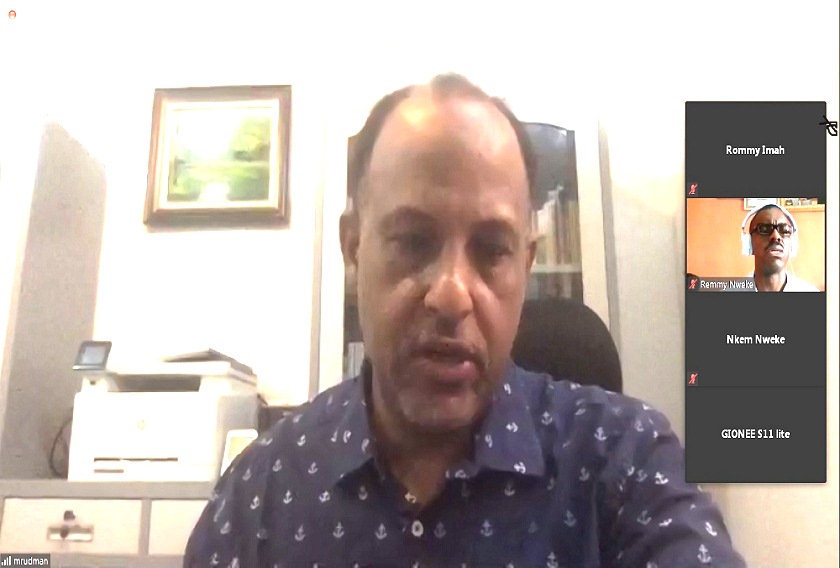As Internet Protocol continues to connect devices over physical networks, the Chief Executive Officer (CEO) of the Internet Exchange Point of Nigeria (IXPN), Mr. Muhammed Rudman has been offering explanations on the need for a new Internet Protocol (IP) and for stakeholders to embrace the Internet Protocol version Six (IPv6).
Rudman is also the chairman, IPv6 Council Nigeria, and the President of Nigeria Internet Registration Association (NiRA).
The IPv6 Council Nigeria Chairman was speaking at the 2020 Digital Rights Series webinar on Nigeria IPv6 Roundtable hosted by ITREALMS in collaboration with DigitalSENSE Africa Media on Saturday, with the theme: Role of IP in 5G v COVID-19 Debate.
Rudman, whose paper was on the “Role of IPv6 in 5G v Covid-19,” noted that every device connected to the Internet needs a unique number, known as an IP address, divided into two categories of addresses, namely the IPv4 and IPv6.
He stated that at the inception of the Internet when connectivity to the commercial Internet was in its infancy, “the pool of around 4 billion IPv4 addresses seemed huge. No one could have predicted the impact the Internet had on our lives and it soon became clear that the pool of IPv4 addresses was not going to last as long as was hoped.
“IPv6 was developed as a solution. The pool of IPv6 addresses contains 2,128 IPv6 addresses or roughly 340 trillion, trillion, trillion addresses.”
On why a new IP is needed in today’s world, Rudman said that it’s a compelling reason for more addresses to be made available to the world.
This, he pointed out would help in addressing the future of the global population, which is estimated to be at 9 billion by 2050.
For billions of new users, he cited that in China, and India among others, “there is about 4.7 Billion people already connected to the internet, across Personal Digital Assistants (PDAs), mobile phones, cars, appliances to name a few.
“In addition to over 300 million registered domains, there is the need to make provision for some billions of new devices, at least for the Internet of Things.”
Rudman said IPv6 features include “scalability of 340 trillion, trillion, trillion, improved security, real-time application, auto-configuration, mobility, addressing and routing and extensibility to mention but a few.”
On the link between IPv6 and Fifth Generation (5G), the chairman pointed out that with the Internet of Things (IoT), which is a system of interrelated computing devices, mechanical and digital machines provided with unique identifiers (UIDs), there is the ability to transfer data over a network without requiring human-to-human or human-to-computer interaction.
He cited some instances under this object to include connected security systems, thermostats, cars, electronic appliances, lights in household and commercial environments, alarm clocks, speaker systems, vending machines and more.
He further said that South Korea currently leads the pack in the deployment of 5G, with coverage in 85 cities. China takes second place with 57 cities, followed by the United States of America (US) with 50 and the United Kingdom (UK) with 31.
The remaining countries in the top 10 for 5G are Saudi Arabia, Spain, the United Arab Emirates (UAE), Australia, Germany, and Romania.
“Nigeria, in November 2019, became the first country in West Africa to test-run 5G technology and applications, thus has not deployed 5G,” he said.
Rudman emphasised that 5G technology entails beamforming, a dedicated radio signal towards the user, while a 4G signal is typically spread across a wide area, which is enabled by massive Multiple-Input and Multiple-Output (MIMO) technology.
According to him, it identifies the most efficient signal path, whereas improving connection reliability, it reduces interference (unwanted signals) and boosts efficient use of spectrum and power thereby allowing for more simultaneous data streams.
On the electromagnetic spectrum, Rudman said that all radiation falls into two classifications – ionising and non-ionising, as such does not have implication connected to 5G.

